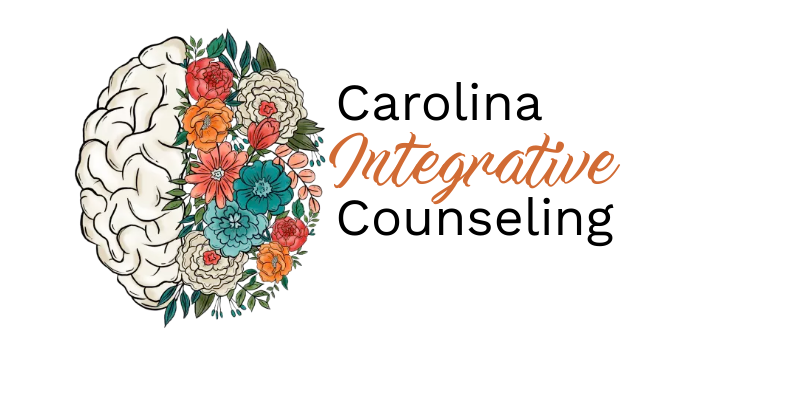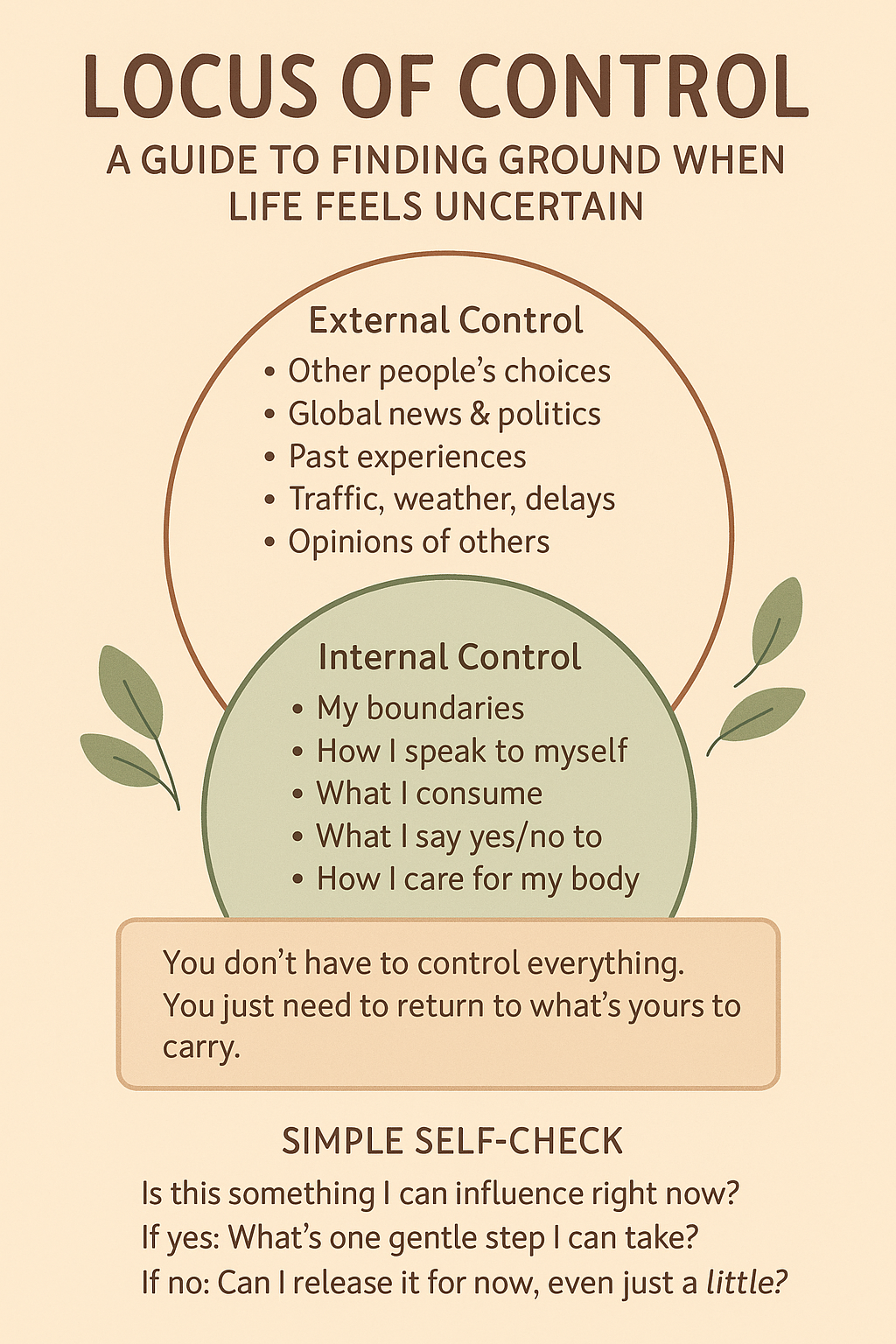Understanding Locus of Control and How It Can Support Your Mental Health
In times of uncertainty or emotional overwhelm, it is easy to feel like everything is spinning out of control. One concept that can help us better understand our stress responses and how to support ourselves through them is called locus of control.
Locus of control is not just a psychology term. It is a lens we can use to make sense of how we respond to the world. It helps us notice where we place our sense of power, responsibility, and choice.
What Is Locus of Control?
Locus of control refers to the belief we hold about what influences the outcomes in our lives.
There are two main types:
Internal Locus of Control
"I believe I can influence my outcomes through my own actions, choices, and efforts."External Locus of Control
"I believe outcomes are mostly determined by outside forces like luck, other people, systems, or fate."
Neither is right or wrong. In fact, we all move between both at different times depending on the situation, our past experiences, and our mental health state.
Why It Matters for Mental Health
When we consistently feel like we have no control, it can lead to symptoms such as:
Anxiety
Learned helplessness
Burnout
Depression
Low self worth
On the other hand, reclaiming a sense of agency, even over small things, can help us:
Feel more empowered
Regulate our emotions
Make values based decisions
Recover from trauma
Set and maintain boundaries
A Therapeutic Way to Use This Awareness
Rather than using this concept to judge yourself ("I should take control"), consider using it as a compassionate check in:
"Right now, do I feel like I am at the mercy of everything… or are there small ways I can return to what is in my control?"
Here are some examples:
Situation: Political chaos
External Viewpoint (Not in My Control): "Nothing I do matters.”
Internal Reframe (What I Can Control): "I can set boundaries with media and take action locally."
Situation: Relationship conflict
External Viewpoint (Not in My Control): "They make me feel worthless."
Internal Reframe (What I Can Control): "I can name my feelings and choose how I respond."
Situation: Work related stress
Internal Reframe (What I Can Control): "This job is ruining me."
Internal Reframe (What I Can Control): "I can reassess my needs, ask for support, or plan a change."
Situation: Trauma response
Internal Reframe (What I Can Control): "I am just broken."
Internal Reframe (What I Can Control): "I am responding how my body learned to survive, and I can heal."
Therapist Tip: Control Versus Responsibility
Having an internal locus of control does not mean blaming yourself when things go wrong. It is not about taking all the responsibility. It is about recognizing the power you do have, so you can make more grounded choices from a place of self compassion.
Start Small: A Practice for Re-Centering Control
When life feels chaotic, try this gentle exercise:
Pause and take a breath.
Name three things that are outside of your control today.
Name three things that are within your control.
Take one small action based on what is in your control (resting, asking for help, drinking water, writing a boundary, etc).
Over time, this re-centering helps restore agency and reduce emotional overwhelm.


